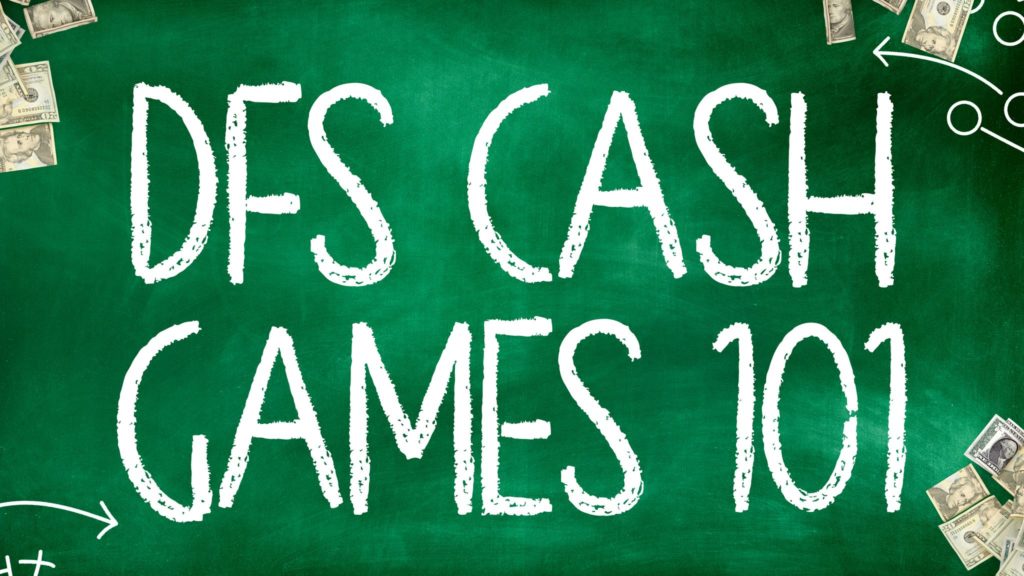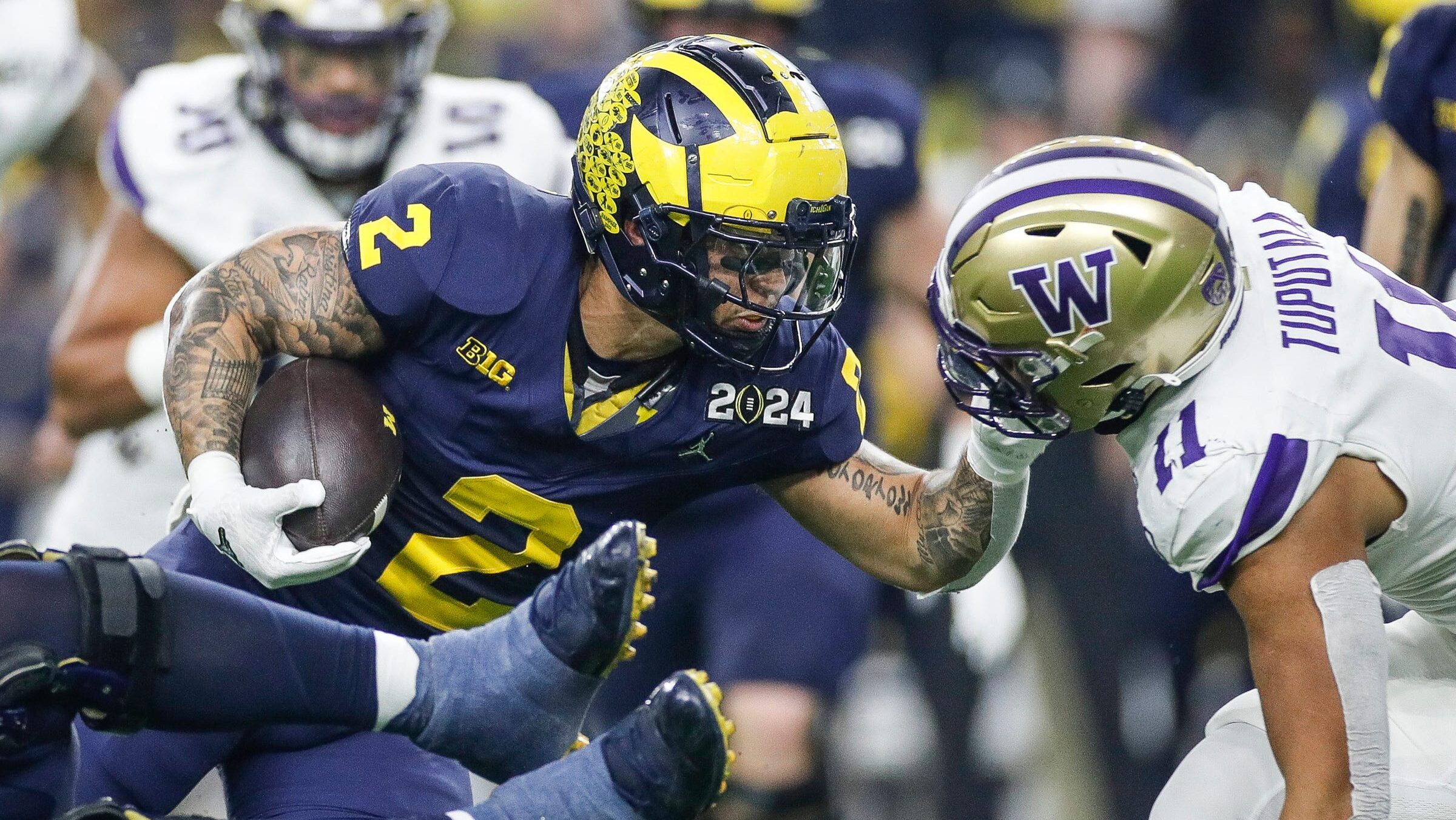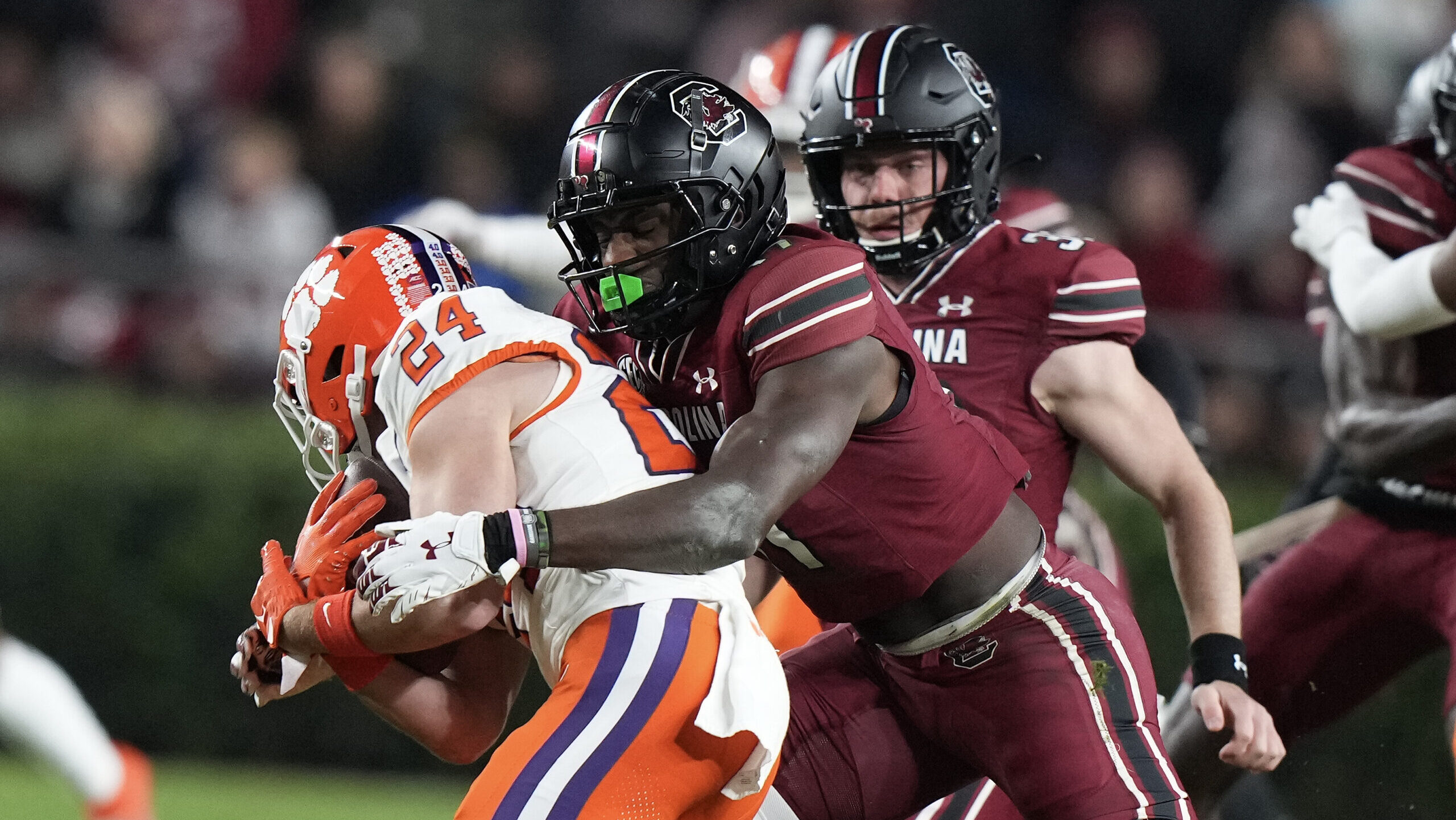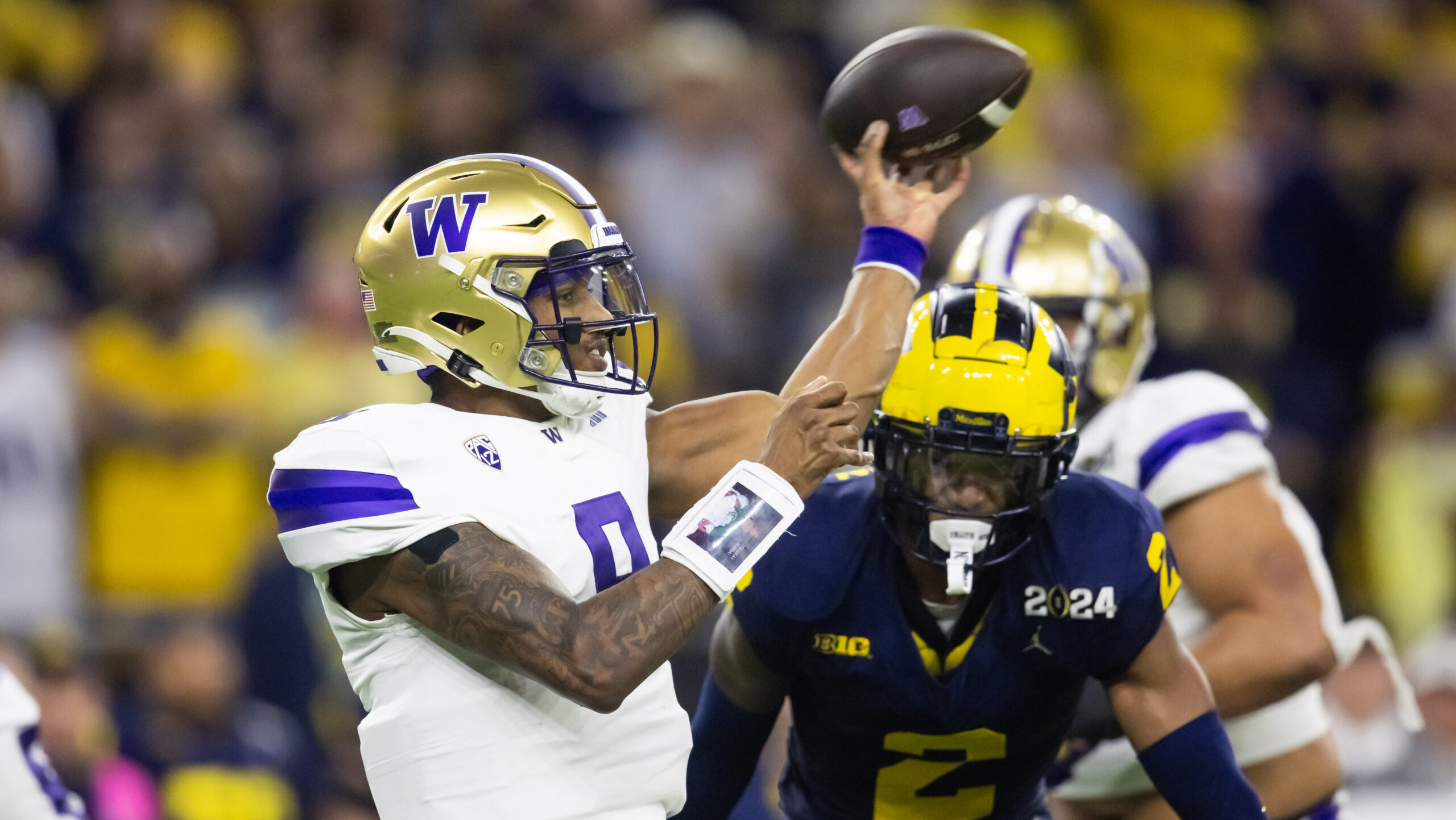Fantasy
8/12/22
12 min read
Cash Games DFS 101

Picture this. It’s Sunday morning, and you are glowingly staring down at the DFS apps on your phone ready to make a quick buck. What’s it going to be? DraftKings because you see millions of ads for it every day? Or is it FanDuel because that’s the sponsor of your favorite podcast?
If we're going to be honest, I’m guessing you weren’t even sure why you chose one over the other. You just do it, because who cares? It’s all the same stuff, isn’t it?
Anyway, you head over to the lobby and see hundreds of contests and numbers that don’t mean anything to you. So, here we go. This is where it all begins. You fire at will and shoot your shot on one of the big contests at the top of that massive list because it looks like you can win enough money for you and your whole family to retire. Sounds great!
But you lose again, just like most weeks because you had no strategy. Speaking candidly, if you have no general understanding of scoring and contest selection, the likelihood of you winning a dollar back—let alone a million—is extremely unlikely.
Believe it or not, this stuff isn’t all luck, honey. There’s plenty of skill to be had in DFS. This is how you found yourself on The 33rd Team's website to meet me, Kyra Wiaterowski — DFS and cash games extraordinaire. But what does it all mean? What the heck is a cash game? Let’s get into it and make you a little bit more of a refined DFS player.
DFS 101
First, let's circle back to the idea that DraftKings and FanDuel are the same things. While they are both similar in offering DFS contests, it’s the scoring format in which they differ. The way points are scored will dictate how you should approach building your lineup.
DraftKings is a full point per reception format whereas FanDuel operates as a half point per reception format. This makes quite the difference in how you look at running backs and pass-catchers on each respective website. Another difference would be that DraftKings offers a three-point bonus for statistics such as 300 yards passing, 100 yards receiving and 100 yards rushing. Those three extra points can make all the difference when you are facing close competition. Lastly, we have the all but forgotten defense, and the penalties they enforce for fumbles. DraftKings deducts one point for a fumble whereas FanDuel is a tad harsher and deducts two.
Cash Games 101
Now that we have a general understanding of how each website operates, it’s time to move on to something that can easily be overlooked by an inexperienced DFS player—the types of games. Each website breaks down its contests into two different game styles: tournament or cash.
The first I’ll quickly touch on is tournaments. However, because I am a cash games writer, we won’t spend too much time going into detail on tournament specifics. Anyhow, tournaments, sometimes labeled “GPPs” (guaranteed prize pools) are essentially games with a set amount of money allotted to a small number of entrants. In short, an easy way to describe a tournament would be that hundreds of thousands of people compete for a high dollar amount and only a select few people who are at the very top win cash prizes.
Most of the people competing walk away with nothing. While this does sound a little crazy for someone to even bother trying, the cash prizes in these tournaments can range upwards of more than a million dollars, so the risk is worth the reward. At least it is to Jordan Vanek, The 33rd Team’s head of DFS tournaments here.
Cash games, on the other hand, are a contest where essentially 50% of the people competing have a chance to win. In the lobby, these games are going to be labeled as 50/50s, head-to-heads and double-ups. We will be discussing those in far more detail in another article. But yes, cash games mean you only need to be just as good as half the people entering the contest to win money. Sounds easy, doesn’t it?
Well, it’s not quite a sunny walk in the park. You must also keep in mind you’re only winning just as much as half the people who are competing. It doesn’t matter if you are first, second or last in placing because it’s all the same cash prize. I suppose this could be considered bad news that cash games won’t make you a millionaire overnight. Turns out, the good news is they are a great way to keep playing and doubling your money week after week, so you can grow a bigger bankroll and start throwing darts at those high-prized tournaments.
Plenty of people—including myself—are profitable cash games players, who like to see themselves win more than we like to see ourselves lose. Tournaments can be a real ego killer if that’s not your strong suit. Over the course of time, my hope is I can help you to become more professional in how you approach these cash games, and a good place to start is by managing your funds by understanding your bankroll.
Bank Roll
To start off with the basics, by definition, your bankroll is just the amount of money you’re willing to invest into your DFS account. The general rule of thumb we recommend here at The 33rd Team is to stick to playing up to 20% of your seasonal bankroll each week. It can even get a little more specific with how you distribute that money each week by considering how much of it should be going into cash games and how much should go into tournaments. While this is completely up to your own preference, I personally play about 80% of cash games weekly, and then the other 20% I’m taking chances on tournaments.
While everybody has their thing, it’s important to know you should not get too carried away and blow all your money in one week trying to strike it rich. Practice makes perfect, and when starting out, it’s a good idea to try and enter some free contests just to get a feel for DFS and the strategy you’d like to implement. Unless you’re the world’s luckiest human, then it’s best to do the freebies and some low-dollar contests to help build your confidence and bankroll gradually.
Cash Tips
I want to help everyone reading this article become a better DFS player than they’ve been in previous years. So, to do that, I have to give you a couple of pro tips that point you in the right direction when considering your lineup every week. Plus, who doesn’t like a cash tip?
Tip number 1: Pay attention to the weather
- This is especially useful to you as the season gets later in the year and winter arrives for most of the teams in the NFL. I find it useful to scour Twitter for a fantasy weatherman (yes, that’s a thing) to help update yourself about the weather conditions. Windy/rainy/snowy/freezing games can lead to less passing, more fumbles and more interceptions. The wind is the largest factor amongst all the elements, but specifically when we see winds over 20+ mph, as illustrated below.
Rain will decrease passing production along with heavy snowfalls. It’s harder to see with snow in front of you, so it’s easy to project that would create an inefficient passing game. Extreme cold weather will also affect a team’s passing production. Ultimately, fewer points are scored because of bad weather, and that’s worth monitoring.

Tip number 2: Recognize defensive matchups
- Know your WR/CB matchups and be aware it can possibly cap a wide receiver's upside. For example, Mike Evans against Marshon Lattimore is a matchup I always remember. Historically, Lattimore gets the best of Evans and forces him into some less-than-stellar performances. I also like to pay attention to running backs in bad matchups against strong rushing defenses. I’ll never forget the dominant run defense during the last few seasons coming out of Tampa Bay. Their ability to shut down the opposing team’s running back has stood out each year. I wouldn’t want to touch matchups like that with a 100-foot pole in cash games. The risk is just not worth the reward. Therefore, I would rather shy away from games with those tough matchups, since I prefer little variance in my lineups.
Tip number 3: Create your own narrative
- In DFS, you should try and tell yourself a story about how you feel the game script is going to go. I know we aren’t time travelers, but judging the game flow can help with your best-educated guess possible. Nothing comes easy that’s worth having, so research can really help benefit you with that. Vegas is going to be our friend in trying to figure out a particular game script.

In the above graph, you can see higher Vegas projected point totals generally have more fantasy points scored. If unfamiliar, think of Vegas' game totals as the expected total points scored in the game by both teams. Let's say the Chargers and Raiders play each other with a 51-point total. If the Chargers are three-point favorites, Vegas is expecting the game to end 27-24 Chargers.
The quarterback seems to be the most impacted. Running backs stay fairly neutral, and wide receivers and tight ends get a bump with expected higher game totals. These trends are intriguing, so I went a step further for running backs. What can impact a running back's production?
It would make sense for the game script to affect them, as well, but how? If Vegas favors a team, we should expect them to hold a lead and run to drain the clock. While the over/under can have little impact on a running back’s fantasy points, it's another story when their team is favored. In a personal study, I took data from the 2019-2021 seasons where a running back scored 25 or more DraftKings points as the favorite or underdog. These were the outcomes:

This is proof that volume is king for your cash game running backs. More rushing attempts will equal more opportunity for fantasy points. This is something to consider when deciding between players at the position.
Tip number 4: Familiarize yourself with rostership
- You’ll hear the term “chalk” thrown around a lot on DFS podcasts and articles. Chalk is just a term used to describe heavily-rostered players on other DFS players' teams. For example, say Patrick Mahomes has a matchup with a high/over-under in a potential shootout. It is likely Mahomes is considered “chalky” to play because everyone will assume he'll have a huge game.
So, why is this an important cash game tip? In cash games, you want to eat the chalk and have a couple of those highly-rostered players on your squad. This is a smart approach because you’re just trying to be in line with the other 50% of people winning. It’s not important to place first as it would be in a tournament game. The top 50% are making the same amount of money, regardless. You may as well try to think in line with the majority.
Tip number 5: Utilize Late Swaps
- Most of the NFL games on Sunday start at 1 p.m. EST, and a handful start in the late afternoon. For this reason, when you are constructing your roster, you should first and foremost make sure any players set to play past 4 p.m. EST go into your flex spot rather than the fixed positions. This gives you the eligibility for what we call in DFS, “a late swap." A late swap is something you want to utilize when things don’t go so great in the 1 p.m. games. This helps when you need to throw up a Hail Mary like you were Aaron Rodgers in Motown.
- For example, let’s say you had a player flop in the 1 p.m. games. You know it is likely people have drafted similar players in the contest. Therefore, you’re going to need to pick someone less chalky for those later games. You can’t have the same players as everyone else. Otherwise, you won’t get ahead and fall into that top half of the field. This is where you go back into the flex position. Aim for a player who is not going to be heavily rostered and presents a high upside. The exact position won’t matter because you can fit any position into the flex. I say it’s better to go down swinging for the fences than to just accept an early defeat.
Summary
I know it can be so overwhelming to take in a ton of information that's being thrown at you. Do your best and try to remember everything we discussed. This is all supposed to be fun! You will get better and better the more you play with trial and error. But, while you digest everything you've read, it’s worth noting all the best DFS players started out somewhere. This is a good way of getting yourself caught up on the most important fundamentals of DFS.
We covered each website's scoring formats, the two basic game types, how to manage your bankroll and a few solid cash game pro tips. While all this is a great start to your DFS journey, there is still so much more in-depth analysis that goes into consistently winning on a week-to-week basis. You should look forward to us bringing you more information about contest selection, roster builds and weekly in-season analysis on valuable players by positions. Talk to you soon!








